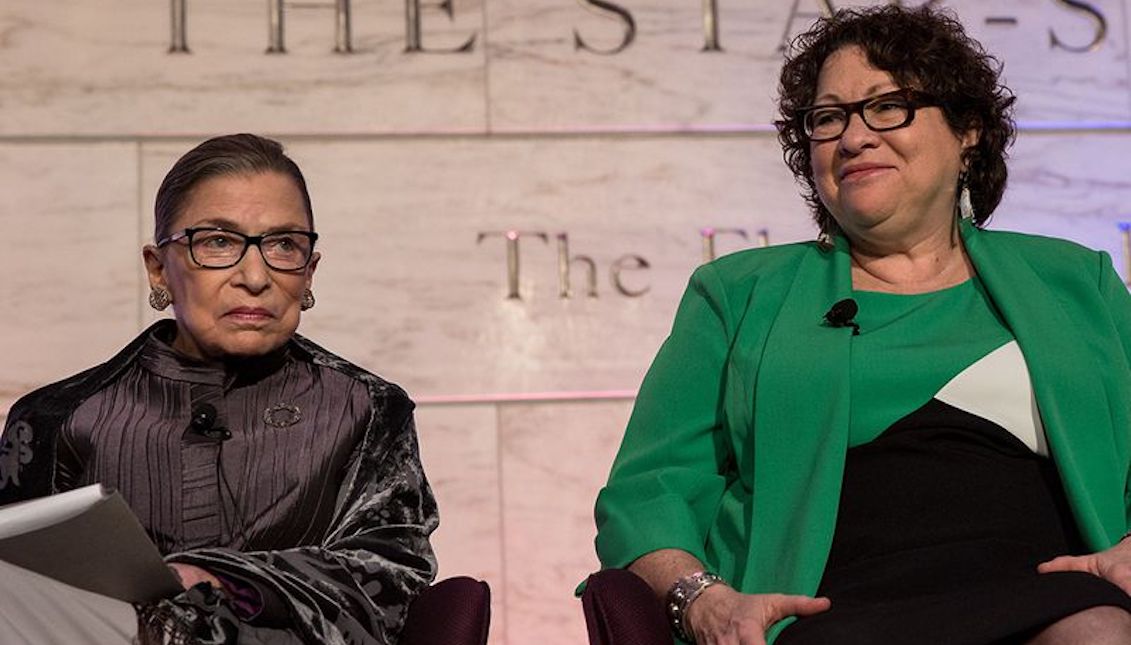
Justice Sonia Sotomayor: Trump's travel ban was 'motivated by anti-Muslim animus’
After the Supreme Court authorized the immigration ban of President Donald Trump against countries with a Muslim majority, the four liberal justices who…
The political division of the country has arrived dangerously at the feet of the Supreme Court.
It’s no secret to anyone that the organ, composed of nine judges, is not exactly a balanced hybrid in politics. Justices John Roberts, Anthony Kennedy, Clarence Thomas, Samuel Alito and Neil Gorsuch were nominated by Republican presidents, the latter being appointed by President Donald Trump; Ruth Bader Ginsburg, Stephen Breyer, Sonia Sotomayor and Elena Kagan are then the most "liberal" wing of the team.
In the face of the controversial decision, whether to maintain or not the immigration ban requested by Trump at the beginning of his administration against citizens coming from countries of Muslim majority, the court had to make a decision that would go beyond any partisanship.
For many, their sentence in favor of the president demonstrates an explicit political bias.
At the time of the vote, it was Roberts, Kennedy, Thomas, Alito, and Gorsuch who agreed.
For their part, Sotomayor and Ginsburg issued an opinion of dissent, arguing that "Trump’s previous statements against Muslims were impossible to ignore in considering the legality of the ban," Bustle reported.
"The United States of America is a nation built upon the promise of religious liberty," the justices wrote. "Our Founders honored that core promise by embedding the principle of religious neutrality into the First Amendment. The Court's decision today fails to safeguard that fundamental principle."
RELATED CONTENT
For both justices, the presidential comments, both oral and through Twitter, are sufficient arguments to consider that the decision to block the access of certain people to the country is a move based on racism and religious prejudice.
The decision "leaves undisturbed a policy first advertised openly and unequivocally as a 'total and complete shutdown of Muslims entering the United States' because the policy now masquerades behind a facade of national-security concerns," Sotomayor wrote.
"Based on the evidence in the record, a reasonable observer would conclude that the Proclamation was motivated by anti-Muslim animus," she added.
In the second part of the document, Sotomayor gives a detailed description of how Trump's policy "was motivated by prejudice against Muslims," citing the president's words, according to Vox.
"This ranged from his December 7, 2015, statement calling for 'a total and complete shutdown of Muslims entering the United States until our country’s representatives can figure out what is going on', to his retweeting of anti-Muslim hate videos on November 29, 2017," the report continues.
Sotomayor concluded by writing that "despite several opportunities to do so, President Trump has never disavowed any of his prior statements about Islam." For the justice, "given President Trump’s failure to correct the reasonable perception of his apparent hostility toward the Islamic faith, it is unsurprising that the president's lawyers have, at every step in the lower courts, failed in their attempts to launder the Proclamation of its discriminatory taint."










LEAVE A COMMENT: